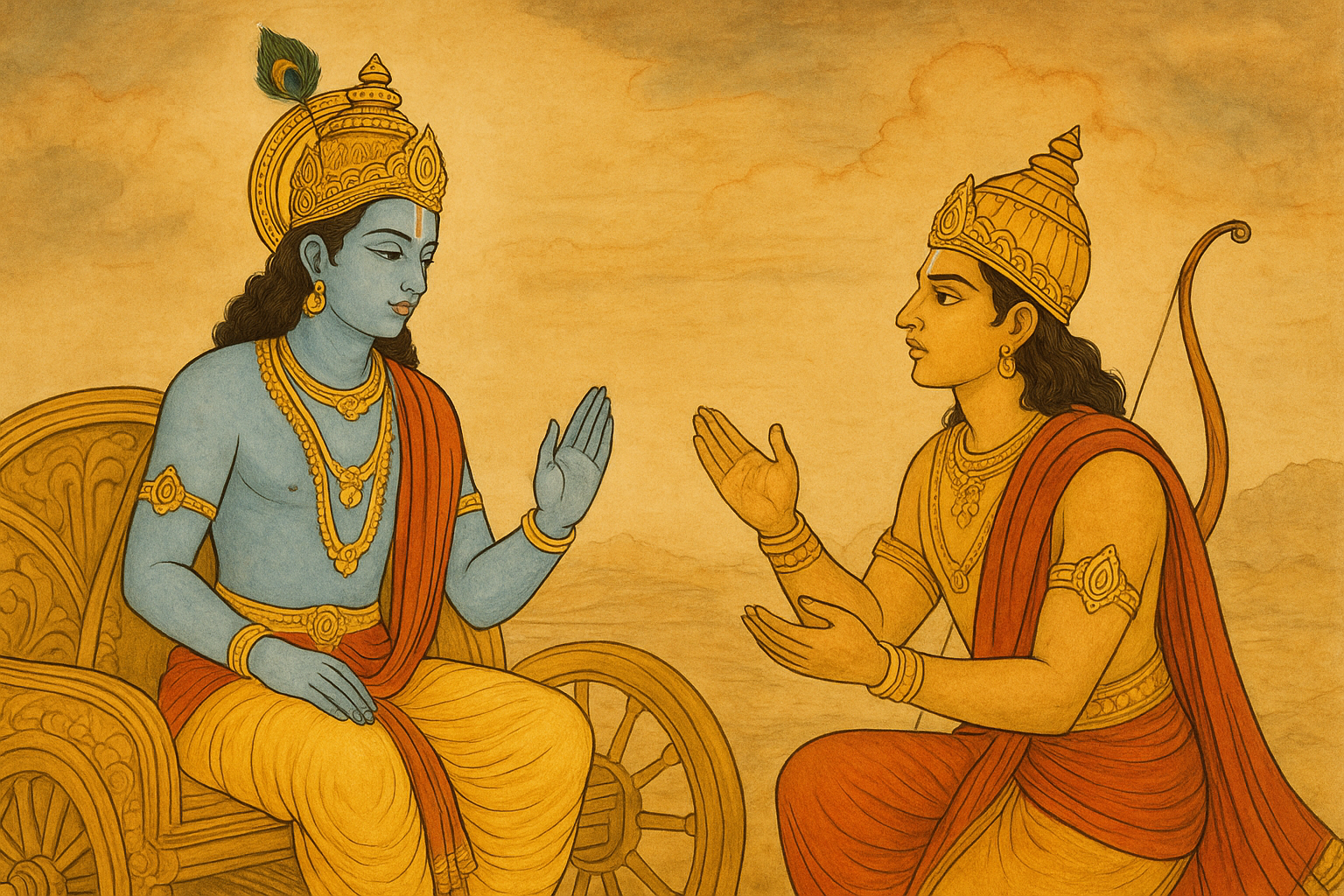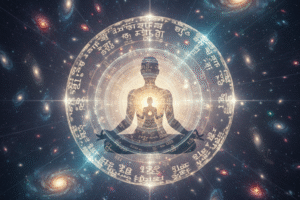
Ch-2|Meaning of Shlokas 6-12
- Posted by Sri Kameswari Foundation
- Date August 29, 2025
- Comments 0 comment
Meaning of Ślokas 6-12
Sometimes, a person’s true nature gets overshadowed. For example, one may normally be free and confident in their interactions. Yet, when faced with the loss of a close family member or struck by a personal tragedy, they may no longer be able to carry themselves with the same confidence.
Arjuna is in a similar state. Losing his composure is not his original nature. If we recall the occasions of Vijaya Yātra or Vidya Pradarśana, he displayed complete confidence in his skills and faithfully followed the instructions of his brothers, his Guru, and Śrī Kṛṣṇa.
But now, as Arjuna himself admits, his dharmic nature is clouded by Kārpaṇya Doṣa—a sense of self-limitation or narrowness, which can be loosely understood as selfishness (lobha).
Arjuna feels that if he wages war, his relatives and Gurus will perish, and he will suffer their loss. His concern is centered on personal grief, not on dharma-sthāpana (the upholding of righteousness), which Bhagavān Śrī Kṛṣṇa intends through this war.
Such a flaw (doṣa) in svabhāva can only be removed by the Guru—here, Bhagavān Śrī Kṛṣṇa—to whom Arjuna surrendered himself.
Śloka 7: Arjuna tells Bhagavān Kṛṣṇa—“Though I am a warrior by nature, I am struck by Kārpaṇya Doṣa and cannot clearly perceive my dharma. Therefore, I surrender to You completely. Please accept me as Your disciple and instruct me on the right path.”
Śloka 11: Bhagavān replies—“Arjuna, you grieve for those like Bhīṣma, for whom no grief is necessary. You speak words that sound wise, but the truly wise (paṇḍitaḥ)—those who know the difference between Ātman and Anātman—do not lament for either the living, who will one day pass away, or the dead, who have already left their bodies.”
Śloka 12: Bhagavān continues—“There was never a time when I did not exist, nor you, nor all these kings; nor will there be a time when any of us cease to exist. After leaving these bodies, our true existence does not come to an end.”
You can also listen to this in Telugu from our Āchārya,Dr. Jammalamadaka Suryanārāyaṇa garu,by clicking the video below.
You may also like

Ch-2|Meaning of Shlokas 18-23

True Scholar,Analogy of Clothes

